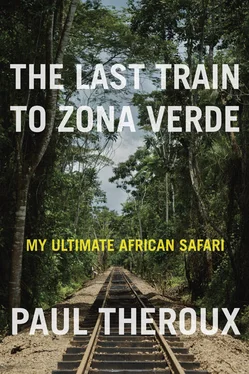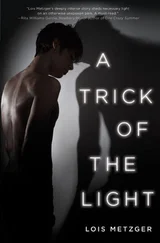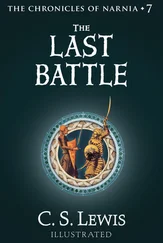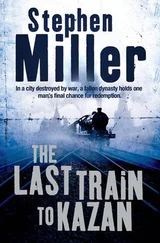Time is a factor in travel, one of the most crucial, though it didn’t matter when I first started traveling as a youth, and later as a middle-aged man: I believed I had all the time in the world then. My travel was open-ended. “I’m not sure when I’ll be back,” I used to say to my family. I vanished into countries and was so far out of touch I seemed to evaporate. I had no idea where I was going, but it was a joy to be on the move, and I kept finding places where I wanted to live — a great incentive in travel, the sense that I would discover a new home.
I recall traveling through Afghanistan and down the Khyber Pass to the lovely town of Peshawar, thinking: I could live here! How wrong I was. Peshawar became a city of refugees, fanatics, mujahideen, suicide bombers, and a bazaar of the Central Asian drug and arms trade. But I was tempted to drop out in other places in the world — dropping out seemed to be one of the temptations in travel, that I would remain in Bali or Costa Rica or Thailand and never come back. I had not yet discovered what Camus wrote in his Notebooks, 1942–1951: “When a man has learned — and not on paper — how to remain alone with his suffering, how to overcome his longing to flee, the illusion that others may share, then he has little left to learn.”
Suffering has no value, but you have to suffer in order to know that. I never found it easy to travel, yet the difficulty in it made it satisfying because it seemed in that way to resemble the act of writing — a groping in the dark, wandering into the unknown, coming to understand the condition of strangeness. In travel, as Philip Larkin says in his poem “The Importance of Elsewhere,” strangeness makes sense. Yet the more I traveled, the greater my homing instinct. As I grow older, the consolations of home take on a deeper meaning.
Although I lived for more than six continuous years in Africa, and kept returning, I resisted the temptation to stay for an extended period. I never met anyone who said, as the Dutch missionaries in long-ago Malawi often did, “I plan to be buried here.” I once played with the idea of founding a school in the Malawi bush, until I realized that it was not for me to patronize Africans by running a school for them, but for Africans themselves to take on that responsibility. There are still outsiders who are prospectors, adventurers, and entrepreneurs in Africa, and I know some of them, but none are in it for the long haul, and all have an exit strategy. It concentrates the mind to be in a place where you know you have no future.
Time means so much more to me now than it did. These days, keenly aware of wasted time, I hear the clock ticking more insistently. I hate the idea of travel as déjà vu. Show me something new, something different, something changed, something wonderful, something weird! There has to be revelation in spending long periods of time in travel, otherwise it is more waste. Another effect of the deaths of Nathan and Rui da Câmara and Kalunga was this very insight. Was I where I wanted to be, doing what I loved? The answer was sometimes Yes, sometimes Where am I? But more often it was What am I doing here?
Because all cities are possessed by an incapacity to be known, and so must be invented or imagined, these were questions I asked in cities. I never questioned being on safari in the zona verde . The bush was Africa’s salvation, and mine. Camus exhorted himself in his Notebooks: “Write the story of a contemporary cured of his heartbreaks solely by long contemplation of a landscape.”
It is the natural landscape that I have always yearned for — and human figures in that landscape. I cannot stand the thought of traveling from city to city, and cities were mainly what awaited me on the last leg of this ultimate safari. Long contemplation of a landscape was once the very definition of a trip through Africa. No longer.
Nor was my old passion to get away at any cost still driving me. “Starting in a hollow log of wood — some thousand miles up a river, with only an infinitesimal prospect of returning — I ask myself, ‘Why?’ ” So Richard Burton wrote in the Congo, in a letter to a friend. He answered himself, as I once did in my way, “And the only echo is ‘damned fool! … The Devil drives.’ ” But Burton was forty-two at the time. I was once a forty-two-year-old hearty in a dugout canoe on a river to nowhere. When he was nearer my age (Burton died in Trieste, at sixty-nine) he was more cautious, no longer a risk taker, but gouty and bronchitic, and happiest at home, indulged by his wife, his days spent fossicking among the books of erotica in his library.
“A question is commonly put to explorers: ‘Why could you not go further when you had already succeeded in going so far?’ ” Francis Galton wrote this in the preface to his Narrative of an Explorer in Tropical South Africa , because he headed home somewhat abruptly. “And the answer to this is, that several independent circumstances concur in stopping a man after he has been travelling for a certain time and distance.”
Galton then reviews these circumstances: the refitting of the expedition, finding more money, learning another language, studying customs, finding helpful information, making new plans. “But [the traveler’s] energies are reduced, and his means become inadequate to the task, and therefore no alternative is left him but to return [home] while it is still possible for him to do so. It is therefore not to be expected that any large part of the vast unexplored region before us will yield its secrets to a single traveller, but, rather, that they will become known step by step through various successive discoveries … It is probable that for years to come there will still remain ample room in Africa for men inclined for adventure to carry out in them, if nowhere else, the metier of explorers.”
That was also how I felt. Let someone else (proctologist, Piranesi, foolhardy wanderer, someone with time to kill) continue where I left off, and the rest of Africa might yield its secrets to this traveler. In my rigorous experiences with space and time I had just one guinea pig to torture — myself. And now, self-reprieved, back in Cape Town, revisiting some of the places I’d seen earlier, ending my trip, I was happy.
On my last day I woke as usual, meditated a little, took my gout pills, and wrote some notes over breakfast. Then I gathered my clothes, everything except what I stood up in. I was sick of the clothes I had worn every day of my trip. I made a bundle of them, with my silly hat on top, took the train to Khayelitsha, and, randomly stopping a woman at a market stall, asked her if she wanted them. She wasn’t surprised at the sudden offer, a perfect stranger hoisting an armload of old clothes at her. She reacted as if this sort of thing happened all the time and accepted them gratefully, saying, “These will fit my husband.” With a kindly smile she advised me to be careful in the township, to keep my hand on my wallet, and to leave as quickly as possible.
Not the end of travel, or of reckless essaying — there is no end to those for me — but the end of this trip and this sort of travel, marinated in politics and urban wreckage, where the only possible narrative I see (and am unwilling to write) is an anatomy of melancholy. There is a world elsewhere .
What am I doing here? I knew at last. I am preparing to leave. On the red clay roads of the African bush among poor and overlooked people, I often thought of the poor in America, living in just the same way, precariously, on the red roads of the Deep South, on low farms, poor pelting villages, sheepcotes, and mills — people I knew only from books, as I’d first known Africans — and I felt beckoned home.
* It was Arthur Rimbaud’s in Aden, in 1884, unemployed, writing home and lamenting in the heat. “What a deplorable existence I lead in this absurd climate and under what frightful conditions! How boring! How stupid life is! What am I doing here?” (quoted in Jean Marie Carré, A Season in Hell , 1931).












